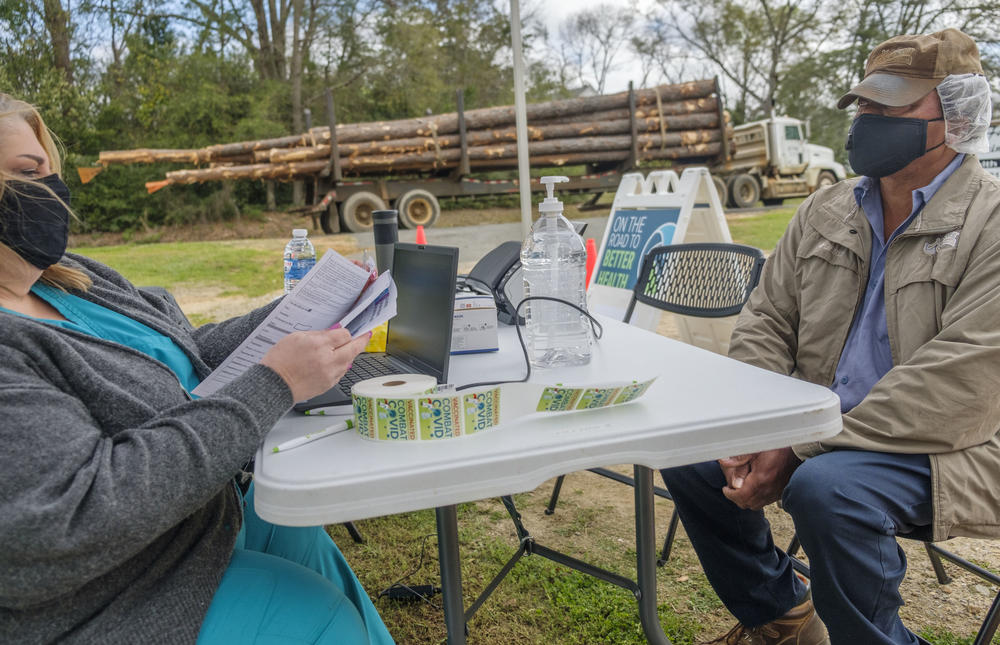
Caption
Peanut farmer Gerue Reliford, Jr. gets checked into a mobile vaccine clinic parked in Preston, Ga., in March 2021.
Credit: Grant Blankenship/GPB
A new study finds the delta variant of the coronavirus hospitalized and killed far more people in rural parts of the state than in urban areas. Researchers say this provides further proof that vaccines mitigate the impacts of COVID-19. GPB’s Ellen Eldridge reports.

Peanut farmer Gerue Reliford, Jr. gets checked into a mobile vaccine clinic parked in Preston, Ga., in March 2021.
The delta variant of the coronavirus hospitalized and killed far more people in rural parts of Georgia than in urban areas, according to a study published Feb. 10, 2022, in JAMA Open Network.
The University of Cincinnati in collaboration with Augusta University examined how the third wave of COVID-19 — led by the fast-spreading delta variant — swept across the United States in the summer of 2021.
Using data from July 1 to Aug. 31, 2021, researchers showed further evidence for what leading health experts, including the director of the Centers for Disease Control and Prevention, had already warned.
CDC Director Dr. Rochelle Walensky said in June 2021 that everyone should get vaccinated against COVID-19 as soon as possible.
"What concerns me is the heterogeneity of where we are across the country, because this virus is going to be an opportunist and it may not go to places in California that are 70% vaccinated, but it may well go to places in Georgia that are 20% vaccinated," she said. "And these are preventable sicknesses and deaths."
Even with the warnings, many of Georgia's less-populated counties hovered around a 33% fully vaccinated rate as the delta variant arrived in June 2021. It quickly became the dominant source of COVID-19 cases in the state.
RELATED:
That more Georgians in areas of low vaccination did experience higher rates of hospitalization and deaths by COVID-19 during the summer of 2021 was virtually expected, this study shows vaccines save lives, a co-author said.
Dr. Phillip Coule, associate dean at the Medical College of Georgia at Augusta University said peer-reviewed research serves as an external validation to account for any factors that hadn't been considered by the authors as well as any potential misinterpretation of the data when reaching the conclusions.
"The fact that this is a peer-reviewed study is very important for that purpose because non peer-reviewed literature should be viewed a little more cautiously," he said. "Typically, a panel of experts in the field look at the data and look at the manuscript in an independent fashion and have the ability to say, 'Yes, I agree with this data in this assessment and that the data support the conclusions that have been reached and that the study approach was valid.'"
Despite high numbers of vaccinated people more recently contracting omicron, they are significantly less likely to experience severe illness and hospitalization than unvaccinated people, the study shows.
The COVID vaccine lessens the burden on a community in terms of transmission of the virus and outcomes from the virus, Coule said.
"And that's what this study shows," he said, "but that's also what we see in our community."